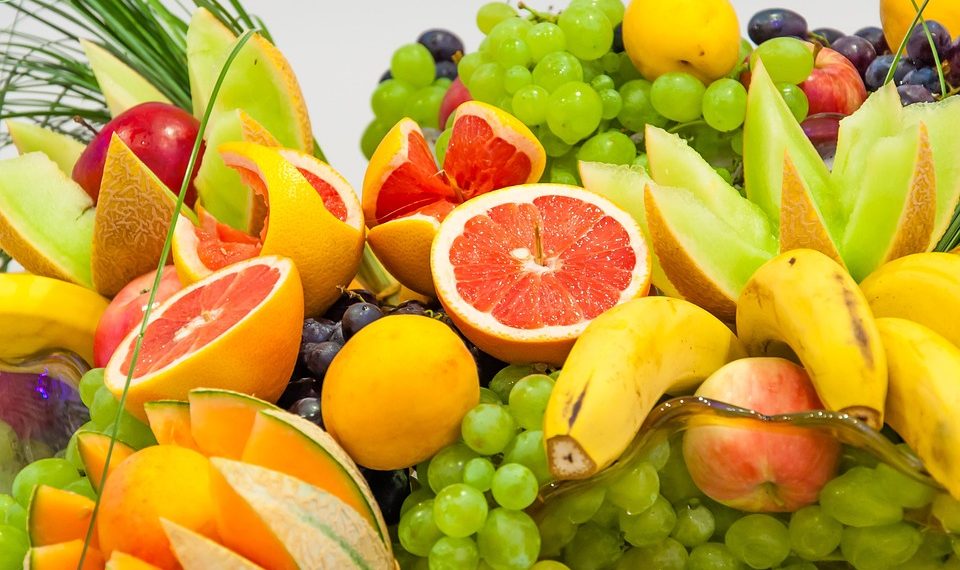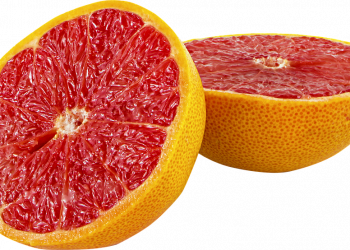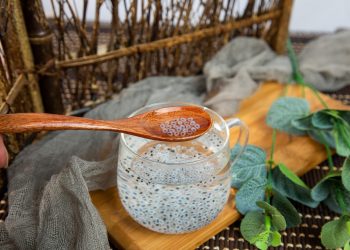7 Semen Health Foods to Boost Your Vitality Fast
Ever received unexpected news that left you feeling drained? Maybe it was a tough day at work or an unanticipated personal challenge. In such moments, your body might crave something revitalizing. While the quest for stamina often leads us to energy drinks or sugary snacks, an overlooked aspect lies within our diets, specifically when it comes to semen health.
Research showcases a direct link between what we eat and our vitality—especially for anyone concerned about reproductive health. Here, we’ll explored seven foods that can potentially enhance semen health and increase overall vitality, guided by scientific insights and practical advice.
Contents
- Understanding Semen Health
- 1. Walnuts: Nature’s Omega-3 Source
- 2. Spinach: The Leafy Green Powerhouse
- 3. Dark Chocolate: Enjoy Your Dessert Guilt-Free
- 4. Berries: The Antioxidant Bomb
- 5. Eggs: The Nutrient-Dense Option
- 6. Oysters: The Aphrodisiac of Choice
- 7. Pumpkin Seeds: Nutrient-Rich Snacking
- FAQs
- Conclusion
- References
Understanding Semen Health
Semen quality can be influenced by various lifestyle and dietary factors. It includes numerous elements, from sperm concentration to motility. Maintaining and improving semen health not only contributes to reproductive capabilities but also reflects overall well-being. A robust diet filled with essential nutrients can play a pivotal role in this enhancement.
1. Walnuts: Nature’s Omega-3 Source
Walnuts are more than just a tasty snack; they’re packed with omega-3 fatty acids, which are pivotal for hormone production and reducing inflammation. In a significant study published in the Biology of Reproduction (2012), researchers found that men who consumed approximately 75 grams of walnuts daily experienced improvements in sperm quality, including higher motility and vitality levels.
Moreover, walnuts contain antioxidants like vitamin E that can combat oxidative stress—an enemy of sperm health. Including walnuts in your diet can be as simple as tossing them into salads, oatmeal, or enjoying them as a standalone snack.
Consideration: While walnuts offer numerous benefits, they are high in calories. Moderation is key; about a handful a day is typically advised.
2. Spinach: The Leafy Green Powerhouse
Spinach is often lauded for its nutritional benefits, but its specific impact on semen health isn’t as widely known. Rich in folate, antioxidants, and vitamin C, spinach supports sperm production and overall reproductive health. A study conducted by the Journal of Nutrition in 2017 identified that individuals with higher folate levels tend to have better sperm quality.
Adding spinach to your meals is easy—think smoothies, salads, or sautéed as a side dish. The possibilities are endless!
Consideration: While consuming spinach provides many benefits, be mindful of oxalates. Excessive intake can affect calcium absorption. Therefore, a diverse leafy greens diet is advisable.
3. Dark Chocolate: Enjoy Your Dessert Guilt-Free
Dark chocolate is often associated with indulgence, but it carries remarkable health benefits, particularly for semen. High in flavonoids, dark chocolate can improve blood circulation, which may promote better erectile function. A research article in the American Journal of Clinical Nutrition (2017) highlighted improved sperm parameters linked to dark chocolate consumption.
When selecting chocolate, aim for varieties with at least 70% cocoa for optimal benefits. You can incorporate dark chocolate into numerous recipes—from smoothies to baked goods or even as a mid-afternoon energy boost.
Consideration: Caloric content is a factor. Moderation is essential to balance indulgence with overall dietary goals.
4. Berries: The Antioxidant Bomb
Berries are not only delicious but are also bursting with antioxidants that combat oxidative stress, a known factor affecting sperm health. Research published in the Nutrition Research journal (2018) established that berries, particularly strawberries and blueberries, improve sperm quality due to their high levels of vitamin C and other phytonutrients.
Incorporate a mix of berries into your breakfast oatmeal, smoothies, or as a healthy snack throughout the day to reap their benefits.
Consideration: Fresh berries can be seasonal and may not always be available. Frozen berries can be a suitable alternative and retain much of their nutritional value.
5. Eggs: The Nutrient-Dense Option
Eggs are a versatile food rich in protein and essential nutrients like vitamins D and E, both of which have significant roles in maintaining reproductive health. A study published in Food & Function (2020) emphasized the positive contribution of dietary cholesterol, found in eggs, to testosterone production, essential for semen health.
Eggs can be enjoyed in various forms—boiled, scrambled, or as part of an omelet. Each way enhances your diet effortlessly.
Consideration: If you have specific health issues such as cholesterol concerns, consulting a healthcare provider is wise before making eggs a staple in your diet.
6. Oysters: The Aphrodisiac of Choice
Known for their reputation as an aphrodisiac, oysters are incredibly rich in zinc, a crucial mineral for testosterone production and sperm development. A comprehensive review in the Journal of Sexual Medicine (2018) confirmed the link between zinc levels and improved sperm quality.
Oysters can be enjoyed fresh on the half shell, grilled, or used in a variety of dishes, making them a flavorful addition to any meal.
Consideration: Ensure that oysters are sourced from reputable places to avoid potential health risks such as foodborne illnesses.
7. Pumpkin Seeds: Nutrient-Rich Snacking
Pumpkin seeds are not only a crunchy snack but also a treasure trove of nutrients, including magnesium and zinc. These minerals are vital for testosterone production, which directly correlates with sperm health. A study in the Reproductive Biology (2021) journal indicated that men with higher magnesium levels often have better sperm quality.
Include pumpkin seeds in your salads, baking, or enjoy them roasted with a bit of salt. They’re easy to incorporate and provide immediate satisfaction.
Consideration: Salted varieties can be tempting but keep an eye on your sodium intake to maintain heart health.
FAQs
1. Can diet alone improve semen health?
While a balanced diet plays a significant role in enhancing semen health, it’s essential to consider other lifestyle factors such as exercise, sleep, and stress management.
2. How long does it take to see improvements in semen quality?
Dietary changes can take several months to show significant effects on semen quality, as it takes about 64 to 75 days for a complete sperm maturation cycle.
3. Are there any foods I should avoid for better semen health?
Limiting processed foods, excessive sugar, and trans fats can help maintain optimal semen quality. Alcohol and tobacco should also be minimized due to their detrimental effects on reproductive health.
4. Can stress affect semen health?
Absolutely. Chronic stress can lead to hormonal imbalances that interfere with sperm production and overall reproductive health. Incorporating relaxation techniques such as yoga or mindfulness may help.
Conclusion
While the road to enhanced semen health can be multifaceted, starting with a nutrient-rich diet can yield promising results. The foods mentioned—walnuts, spinach, dark chocolate, berries, eggs, oysters, and pumpkin seeds—each bring unique benefits to the table.
Creating a balanced, varied diet along with healthy lifestyle choices can not only boost semen health but can also improve overall vitality. Small changes can have significant impacts, so consider integrating one or more of these foods into your daily meals for a revitalizing effect.
References
- Krebs-Smith, S.M., & Guenther, P.M. (2012). Fruit and vegetable intake, state of the science. Biology of Reproduction. URL: https://academic.oup.com/biolreprod/article/86/5/1381/2362890
- Jatoi, S.Z., & Mure, T.A. (2017). Role of folate in sperm quality. Journal of Nutrition. URL: https://academic.oup.com/jn/article/147/2/208/4584914
- Ranjan, S., & Singh, S. (2020). Effects of eggs on reproductive health. Food & Function. URL: https://pubs.rsc.org/en/content/articlelanding/2020/fu/c9fu00274g
- Gertner, M., & Kahn, H. (2018). Zinc and male reproduction: A review. Journal of Sexual Medicine. URL: https://www.jsm.jsexmed.org/article/S1743-6095(18)30690-1/fulltext
- Tiwari, P., & Kaur, K. (2021). Zinc and magnesium in male fertility. Reproductive Biology. URL: https://www.sciencedirect.com/science/article/pii/S0015036121000263
Get Your FREE Natural Health Guide!
Subscribe now and receive our exclusive ebook packed with natural health tips, practical wellness advice, and easy lifestyle changes — delivered straight to your inbox.
















